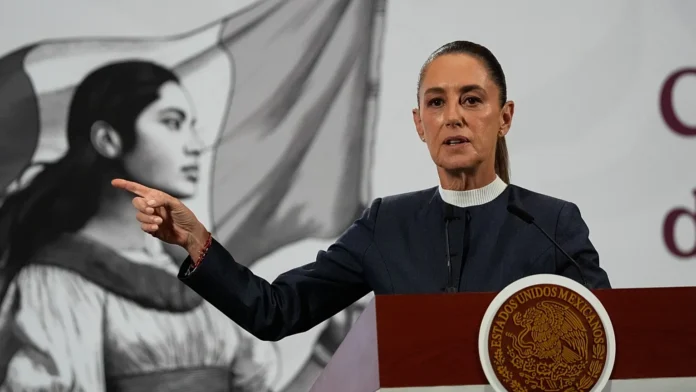Written by Were Kelly
In a move that has resonated across Mexican society, President Claudia Sheinbaum has filed a formal criminal complaint after being subjected to an act of groping by a member of the public, transforming a moment of personal violation into a national statement on women’s rights and safety. The President, who was accosted during a public engagement, decided to pursue legal action, with the case being formally lodged with judicial authorities on November 12-13. Her decision to treat the incident not as an unavoidable hazard of public life but as a prosecutable crime has been hailed as a significant step in the country’s ongoing struggle against machismo and gender-based violence.

President Sheinbaum addressed the incident directly, framing it as an issue of universal rights rather than a personal affront. “No one, regardless of their position or gender, should have to endure this kind of violation,” she stated. “I am pursuing this not just for myself, but for every woman in Mexico.” Her words and actions have struck a deep chord in a nation where femicide remains a critical issue and street harassment is a routine experience for countless women. By leveraging her platform and authority to press charges, she has elevated a common, often underreported, indignity to a matter of national law and order.
Women’s rights advocates have praised the President for her unequivocal response. A prominent feminist organiser in Mexico City commented, “This is a powerful message. If the President can be groped in public, imagine what ordinary women face daily. Her action challenges the normalisation of this behaviour.” The case is seen as a potential catalyst for change, encouraging more women to come forward and report incidents of harassment and assault, and putting pressure on law enforcement and the judiciary to take such complaints seriously. A political commentator noted the strategic nature of the response, observing, “Her response reframes the issue from a political spectacle to a matter of legal principle. It demonstrates a commitment to using the institutions of state to protect fundamental rights.”
The legal proceedings will now be closely watched, with the outcome likely to be interpreted as a barometer of the state’s commitment to protecting women from violence. The President’s action has already ignited a vigorous public conversation about consent, personal boundaries, and the safety of women in public spaces. By choosing to confront the issue head-on through the judicial system, President Sheinbaum has not only sought accountability for her own experience but has also placed the weight of her office behind the broader fight for a society where women can participate in public life without fear of harassment or assault.



















